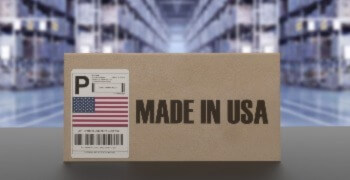
Colorado simplifies local business licensing requirements for remote retailers
Retailers with either incidental physical presence or no physical presence in a local taxing jurisdiction in Colorado can no longer be required to apply for a local business license in that jurisdiction starting July 1, 2023. Score one for businesses.
This new local business license policy is due to the enactment of SB22-032 back in April 2022. Since then, the Colorado Department of Revenue has been consulting with local tax authorities and retailers to implement new processes. There’s a lot to sort out, as this represents a significant change for local jurisdictions.
In this post, we’ll answer the following five questions:
- What’s changing with local business licenses in Colorado?
- When do the local business licensing changes take effect?
- What is “incidental physical presence” in a local jurisdiction?
- Why is Colorado eliminating local business licenses for remote retailers?
- Will Colorado’s new local business licensing requirements simplify compliance for remote businesses?
1. What’s changing with local business licenses in Colorado?
SB22-032 changes local business licensing requirements for certain retailers in two ways.
First, the legislation prohibits local taxing jurisdictions from collecting a general business license fee from retailers with no physical presence in a local jurisdiction or from retailers with “incidental physical presence” in a local jurisdiction.
Second, SB22-032 prohibits local taxing jurisdictions from requiring certain businesses with no physical presence or incidental physical presence to apply for a local business license.
2. When do the local business licensing changes take effect?
Colorado is phasing in its new local business license policies.
No local business license fees as of July 1, 2022
Effective July 1, 2022, local taxing jurisdictions are prohibited from charging a fee for a local general business license for a retailer that:
- Holds a Colorado state standard retail license
- Does not have a physical presence in the local jurisdiction, or has only “incidental physical presence” within the jurisdiction
No need to apply for local business licenses as of July 1, 2023
Starting July 1, 2023, local taxing jurisdictions “shall not require” any retailer holding a state standard retail license to apply for a separate local general business license, provided the retailer has no physical presence or only has incidental physical presence in the jurisdiction.
Should the local taxing jurisdiction require such retailers to obtain a local business license, they must automatically issue a general business license to the retailer, at no charge, using information provided by the Colorado Department of Revenue.
Local taxing jurisdictions are not required to issue a local general business license to any retailer that previously held a general business license in the jurisdiction and had it revoked. Furthermore, SB22-032 doesn’t prevent local taxing authorities from suspending or revoking a business’s local general business license for violating local codes.
3. What is “incidental physical presence” in a local jurisdiction?
The bill defines “incidental physical presence” as incidental presence of employees, agents, or commissioned salespersons within a local taxing jurisdiction when not otherwise engaged in activities that constitute physical presence in the jurisdiction.
A business is considered to have a physical presence in a local jurisdiction (and not an incidental physical presence) if it performs or provides services or sells, leases, rents, delivers, or installs tangible personal property for storage, use, or consumption within the local taxing jurisdiction. This includes:
- Directly (or indirectly through a subsidiary) maintaining a building, office, salesroom, store, warehouse, or other place of business within the jurisdiction
- Sending one or more employees, agents, or commissioned salespersons into the local jurisdiction to solicit business or to assemble, install, repair, service, or assist in the use of its products, or for demonstration or other reasons
- Maintaining one or more employees, agents, or commissioned salespersons on duty at a location within the jurisdiction
- Owning, leasing, renting, or otherwise exerting control over real or personal property sales within the jurisdiction
- Engaging in activities within the taxing jurisdiction that are subject to business, fire, zoning, or other regulations of the local jurisdiction are considered to have a physical presence in the jurisdiction
- Being subject to taxable privileges other than the requirement to collect sales tax imposed by the local jurisdiction
The law specifies that incidental presence by employees, agents, or commissioned salespersons within a local taxing jurisdiction does not constitute physical presence so long as the employees, agents, or salespersons are not otherwise engaged in any of the activities listed above.
4. Why is Colorado eliminating local business licenses for remote retailers?
On December 1, 2018, Colorado began requiring businesses with no physical presence in the state (aka, remote businesses) to register then collect and remit sales tax. Prior to that date, a business could only be required to register for Colorado sales tax if the business had a physical presence in the state.
The physical presence requirement wasn’t unique to Colorado: No state could require a remote business to register for sales tax until the Supreme Court of the United States overturned the physical presence rule with its decision in South Dakota v. Wayfair, Inc. (June 21, 2018). Though physical presence in a state still establishes a sales tax obligation, the Wayfair decision freed states to enact and enforce economic nexus laws that base a sales tax collection requirement on a remote seller’s economic activity in the state.
Economic nexus has made sales tax compliance more challenging for retailers
Economic nexus laws are now in effect in all 45 states with a general, statewide sales tax, plus Puerto Rico, Washington, D.C., and some local jurisdictions in Alaska. Businesses that sell into more than one state (online, by mail, or by phone) now need to monitor their sales and/or transaction volume in all states; should their sales in a particular state exceed that state’s economic nexus threshold, they’re required to register and comply with all applicable sales tax requirements. Thresholds can be as low as $100,000 in sales or 200 transactions in a year.
With the advent of economic nexus, sales tax compliance has become more burdensome for retailers selling online into all states. But it’s especially challenging for businesses with economic nexus in Colorado because Colorado is a home-rule state.
About 70 local taxing jurisdictions (aka, cities and counties) in Colorado administer their own local sales and use taxes, meaning businesses must register and file sales tax returns with the local taxing authority. Local economic nexus requirements can seriously complicate sales tax compliance for remote sellers.
Recognizing this, Colorado has been working to simplify tax compliance for remote sellers. Eliminating local business licensing requirements — or at least making the process of obtaining a local business license less costly and troublesome for remote retailers — is one way Colorado is simplifying compliance for out-of-state businesses.
5. Will Colorado’s new local business licensing requirements simplify compliance for remote businesses?
They should.
There should already be no licensing fees for retailers that possess a general state business license and have no physical presence in a local jurisdiction or merely incidental physical presence in a local jurisdiction. And starting July 1, 2023, such businesses should automatically be issued a local business license by any local taxing authority that requires a license for remote retailers with no physical presence or merely incidental physical presence in the jurisdiction.
However, these new local business licensing policies won’t entirely eliminate the burden of tax compliance for retailers making sales into Colorado because self-collecting home-rule jurisdictions can still require remote retailers to hold a local business license and collect and remit local sales and use tax. And it can still be challenging for businesses to determine local requirements.
For example, the Town of Eagle specifically refers to SB22-032 on its website and explains how it affects local business licensing requirements for remote retailers and businesses with incidental physical presence in the town. It stands out.
Denver states that it no longer charges a license fee for its biannual retailer’s sales, use, lodger’s tax license; it will automatically send 2024 licenses on December 1, 2023. Denver doesn’t mention incidental physical presence but does specify that businesses located outside Denver that come into Denver to sell, lease, or rent tangible personal property or taxable services in Denver are required to obtain a Denver retailer’s use tax license. This can include making solicitations in Denver, either by direct or indirect representatives, and even by using “other advertising media that is directed to the residents of Denver.” The city also states that if you have economic nexus, “you are required to obtain a Denver sales tax license.”
Boulder still requires remote retailers with economic nexus to register for a local business license and establish an account on Boulder Online Tax. As required by law, there’s no cost for the license for businesses with no physical presence in Boulder. However, Boulder doesn’t appear to have implemented phase two of the business licensing changes; it still requires remote retailers with economic nexus to register for a local business license instead of issuing the license automatically. In theory, this should change on and after July 1, 2023.
The City of Durango doesn’t seem to have gotten the memo. According to the city’s website, businesses that ship items into Durango city limits are required to obtain a Durango business license. There’s a one-time application processing fee of $30 and the website doesn’t say anything about waiving the fee for remote retailers. Businesses that have no physical presence in Durango and don’t send delivery trucks, salespeople, or representatives into the city must obtain a sales tax only license.
So, it seems some kinks may still need to be worked out as these simplification measures come into force. The Colorado Department of Revenue has yet to issue any guidance related to SB22-032. It will have to eventually, as the bill requires the department to gather certain information from remote retailers that are applying for a new general business license or renewing their license, and to share that information with self-collecting home-rule jurisdictions. This is to address any local taxing jurisdiction concerns related to administrative efficiency and remote sales and use tax compliance.
In the meantime, Avalara can help you obtain the business licenses you need.

Avalara Tax Changes 2026 is here
The 10th edition of our annual report engagingly breaks down key policies related to sales tax, tariffs, and VAT.
Stay up to date
Sign up for our free newsletter and stay up to date with the latest tax news.















